2018 ASH Summit on Emerging Immunotherapies Speakers
Learn more about the expert speakers who participated in the 2018 ASH Summit on Emerging Immunotherapies for Hematologic Diseases.
Stephen Ansell, MD, PhD
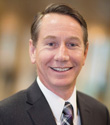
Stephen M. Ansell, MD, PhD, is a consultant in the Division of Hematology, Department of Internal Medicine at Mayo Clinic in Minnesota. Dr. Ansell currently serves as chair of the Mayo Clinic Lymphoma Disease-Oriented Group and chair of faculty development and recruitment for the Division of Hematology. He joined the staff of Mayo Clinic in 1999 and holds the academic rank of Professor of Medicine, Mayo Clinic College of Medicine and Science.
Dr. Ansell earned his MB, ChB, and PhD degrees at University of Pretoria in Pretoria, South Africa, where he also completed an internship in internal medicine and surgery, a residency in internal medicine, and a fellowship in medical oncology. Dr. Ansell continued his education at University of the Witwatersrand in Johannesburg where he earned his DTM&H degree and was a registrar in internal medicine. He further completed a residency in internal medicine and fellowship in hematology-oncology at Mayo Clinic.
Dr. Ansell’s research focuses on investigating the phenotype and activity of intratumoral T cells and developing strategies to modulate the T-cell infiltration in areas of B-cell lymphoma. Further areas of research interest include the development of biologic therapies for non-Hodgkin lymphoma, Hodgkin’s disease, and Waldenstrom macroglobulinemia. The current strategies being developed include the use of novel antibodies and cytokines, the use of targeted therapies, and the development of strategies to inhibit signaling through receptors that promote the survival of malignant B cells. The utility of these strategies is being tested in early-phase clinical trials.
Dr. Ansell is frequently invited to give presentations on his research to both national and international audiences, and he consistently publishes in high-impact scientific journals. He is associate editor of the American Journal of Hematology and serves on the Editorial Board for Annals of Lymphoma, Blood, Blood Cancer Journal, Journal of Clinical Oncology, and Clinical Lymphoma & Myeloma. Dr. Ansell also holds reviewer responsibilities for prominent scientific journals. He has co-authored more than 330 articles in peer-reviewed journals.
In recognition of his work, Dr. Ansell has received awards and honors, including the New Investigator Award, the Teacher of the Year Award in the Hematology Fellowship Program, and the Department of Medicine Research Award for Landmark Contributions to the Literature, all conferred by Mayo Clinic.
In addition to his research activities, Dr. Ansell is active in education and mentoring. He holds full faculty privileges in Biomedical Engineering at Mayo Clinic Graduate School of Biomedical Sciences. Dr. Ansell serves on the Scientific Advisory Board of the Leukemia & Lymphoma Society, the Lymphoma Research Foundation, and the International Waldenstrom Macroglobulinemia Foundation.
Kristin Baird, MD
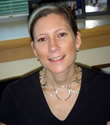
Kristin Baird, MD, is a medical officer in the Office of Tissues and Advanced Therapies (OTAT) at the U.S. Food and Drug Administration Center for Biologics Research and Review (CBER). Dr. Baird first joined the FDA in 2013 and serves on the CAR T-cell and the CAR T-cell Cytokine Release Syndrome Working Groups. Prior to joining the FDA, Dr. Baird was a staff clinician and the clinical fellowship director in the Pediatric Oncology Branch, National Cancer Institute (NCI), National Institutes of Health (NIH). She completed residency at the UCLA Children’s Hospital in 2000 and a pediatric hematology/oncology fellowship at The Johns Hopkins Hospital/NCI joint fellowship training program in 2003.
Bruce R. Blazar, MD
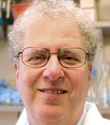
Bruce R. Blazar, MD, received his undergraduate degree from Renssalaer Polytechnic Institute and medical degree from Albany Medical College. He obtained clinical training in pediatrics and hematology/oncology/blood and marrow transplantation at the University of Minnesota. Dr. Blazar is a Regents' Professor, an associate vice president of the Academic Health Center, vice dean for clinical investigation, and founding director of the Clinical and Translational Science Institute (CTSI) and the Center for Translational Medicine, as well as chief of the Pediatric Blood and Marrow Transplantation Program. He is the recipient of two NIH MERIT Awards, the ASH Ernest Beutler Lecture and Prize, the Till and McCullough Lecture Award, Canadian Blood and Marrow Transplant Group, and the Pediatric Blood and Marrow Transplant Consortium, Lifetime Achievement Award.
Dr. Blazar is an elected member of the American Society of Clinical Investigation, Association of American Physicians, American Association for the Advancement of Science, and the National Academy of Medicine. He has directed preclinical basic and translational immunology and stem cell research and early phase clinical studies with particular emphasis in the blood and marrow transplantation immunobiology.
Catherine Bollard, MBChB, MD
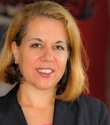
Catherine Bollard, MBChB, MD, received her medical degree at the University of Otago in Dunedin, New Zealand. She is board certified in pediatrics and hematology. Dr. Bollard worked in New Zealand and London, England, before moving to Baylor College of Medicine in 2000 where she was Professor of Pediatrics, Medicine, and Immunology and the Director of the Texas Children’s Cancer and Hematology Center Pediatric Lymphoma Program. In 2013, she started work at Children’s National and The George Washington University School of Medicine and Health Sciences in Washington, DC. Dr. Bollard is currently Director of the Center for Cancer and Immunology Research and Professor of Pediatrics and of Microbiology, Immunology, and Tropical Medicine.
She is a member of the American Society for Clinical Investigation and is President of the International Society for Cellular Therapy. Dr. Bollard is on the Board of Directors of the Foundation for the Accreditation of Cellular Therapy and chairs the non-Hodgkin lymphoma committee of the Children’s Oncology Group. She is an Associate Editor for the journals Blood and Cytotherapy. Dr. Bollard is a member of both the NCI Clinical Oncology Study Section and the Cellular, Tissues, and Gene Therapies Advisory Committee for the U.S. Food and Drug Administration. Dr. Bollar’s bench and translational research focuses on improving outcomes for patients after hematopoietic stem cell transplantation as well as the development of novel cell therapies for viral diseases and hematologic malignancies.
Rodrigo T. Calado, MD, PhD
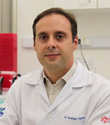
Rodrigo Calado, MD, PhD, received his medical and postdoctoral degrees from the University of São Paulo. Dr. Calado was a postdoctoral fellow in Dr. Neal Young's laboratory at the National Heart, Lung, and Blood Institute, National Institutes of Health, where he later worked as a staff scientist. He is currently Associate Professor of Medicine (Hematology) at the University of São Paulo and Scientific Director at the Ribeirão Preto Blood Bank. Dr. Calado’s main research focus in on bone marrow failure, including acquired aplastic anemia and inherited marrow failure syndromes. He works on the development of novel therapies for hematopoietic stem cell failure.
Glenn Dranoff, MD
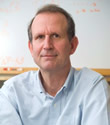
Glenn Dranoff, MD, is the global head of Exploratory Immuno-oncology at Novartis. Before that, he served as a professor of medicine at Dana-Farber Cancer Institute and Harvard Medical School. Dr. Dranoff developed a basic and translational research program to elucidate the cellular and molecular mechanisms underlying the generation of anti-tumor immunity. Work in his laboratory gave rise to multiple clinical protocols at the Dana-Farber Cancer Institute, which have defined the biologic activity of several cancer immunotherapies in patients with solid or hematologic malignancies; these investigations have helped provide the foundation for the recent FDA approvals of the first therapeutic cancer vaccine and the first monoclonal antibody that blocks negative immune regulation.
Dr. Dranoff served as the leader of the Dana-Farber/Harvard Cancer Center Program in Cancer Immunology, a co-leader of the Dana-Farber Cancer Vaccine Center, the director of the Dana-Farber Human Gene Transfer Laboratory, and a principal investigator of the Harvard Immunology Training Grant for Pre-doctoral Students in Cancer Immunology.
He is the recipient of the Eli Lilly Biochemistry Award in Gene Therapy and the Stohler Scholarship of the Leukemia & Lymphoma Society. Dr. Dranoff was elected to the Academy of Cancer Immunology, the American Society of Clinical Investigation, the American Association of Physicians, the European Academy of Tumor Immunology, and the Osler Interurban Clinical Club. He is also the recipient of the 2015 William B. Coley Award for Distinguished Research in Basic and Tumor Immunology. Dr. Dranoff is the Founding Editor-in-Chief of Cancer Immunology Research.
Boro Dropulić, PhD, MBA
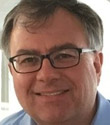
Boro Dropulić, PhD, MBA, is the chief science officer and general manager of Lentigen Technology Inc., (LTI), a wholly owned subsidiary of Miltenyi Biotec GmbH. He obtained his PhD from the University of Western Australia, focusing on how viruses gain entry into the brain to cause encephalitis, and he holds an MBA from Johns Hopkins University and a BSc from the University of Western Australia. Prior to working at LTI, Dr. Dropulić founded Lentigen Corporation and served as its chief scientific officer and president. He was also the founder and chief scientific officer at VIRxSYS Corporation, where he successfully led a multidisciplinary team to initiate and complete the first lentiviral vector clinical trial in humans. Prior to that, Dr. Dropulić was an instructor and adjunct assistant professor at Johns Hopkins University School of Medicine, where he was the first to develop an HIV-based vector targeted to inhibit the replication of the HIV/AIDS virus. He was previously a Fogarty Fellow at the National Institutes of Health (NIH), where he worked on developing transgenic animals using embryonic stem cell technology, understanding molecular aspects of HIV replication, and gene therapy for HIV/AIDS.
Dr. Dropulić has served on a number of committees, including grant review committees at the NIH, EU, and CIRM. He is also a member and chair of several committees for the American Society for Gene and Cell Therapy.
Fabio Fachin, PhD

Fabio Fachin, PhD, is the vice president of cell therapy manufacturing at Torque Therapeutics. His early career was in the space sector, developing micro- and nano-technologies for aircraft and satellite guidance, and he holds a PhD in aerospace engineering from the Massachusetts Institute of Technology. After his doctoral studies, Dr. Fachin transitioned from aerospace to the biomedical field, pursuing a post-doctoral fellowship at Harvard Medical School, during which he combined his background in micro-engineering and biotechnology to pioneer the development of multi-physics microfluidic technologies for cell separation, some of which resulted in commercial platforms such as Micromedicine’s cell isolation tools. In 2012, Dr. Fachin joined the Massachusetts General Hospital and Johnson & Johnson as lead scientist for the development of an automated microfluidic platform for circulating tumor cell isolation and cancer diagnostics. He moved to Novartis’ Cell Therapy Division in 2014, where he invented and developed some of the cell enrichment and manufacturing protocols for Kymriah, the first FDA-approved CAR-T immunotherapy product.
Since 2017, Dr. Fachin has led Torque Therapeutics Deep-PrimingTM cell therapy programs. He holds several granted and pending patents, including a continuation of the seminal CAR-T patent “Methods of Making Chimeric Antigen Receptor-Expressing Cells.”
Aaron Foster, PhD
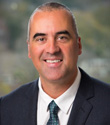
Aaron Foster, PhD, is vice president of product discovery at Bellicum Pharmaceuticals. He leads the CAR and engineered TCR T-cell programs that incorporate novel molecular switches to control T cell behavior in vivo using small molecule ligands. Prior to joining Bellicum in 2012, Dr. Foster was an assistant professor at the Center for Cell and Gene Therapy at Baylor College of Medicine, where he led a group researching adoptive T-cell therapies, cancer vaccines, and nanotherapeutics. He received an undergraduate degree in biology from the University of Puget Sound and a PhD in chemical engineering from the University of Sydney.
Adrian Gee, PhD
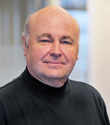
Adrian Gee, PhD, received his bachelor's degree from the University of Birmingham, England, and his PhD from the University of Edinburgh, Scotland. He did his postdoctoral training at the National Institutes of Health and the University of Toronto before taking a faculty position at the University of Florida. There, Dr. Gee performed some of the first applications of immunomagnetic tumor purging in the United States, and his laboratory became a central cell processing facility for this procedure. He joined Baxter Healthcare in 1987, where he worked on the development of the MaxSep and Isolex magnetic cell separators.
Dr. Gee co-founded the International Society for Hematotherapy and Graft Engineering (ISCT) and the Journal of Hematotherapy (now Cytotherapy) in 1992. From 1992 to 1997, he helped establish the stem cell transplantation program at the University of South Carolina. Dr. Gee then directed the Cell Processing Laboratory at the University of Texas MD Anderson Cancer Center until 1999, when he joined the Center for Cell and Gene Therapy at Baylor College of Medicine. He was involved in the development of standards for the collection, processing, and transplantation of hematopoietic stem cells for the Foundation for the Accreditation of Cell Therapy (FACT), the AABB, and the National Marrow Donor Program.
Dr. Gee has written more than 180 scientific articles and has authored and edited a number of books on graft engineering and stem cell processing. He is currently a member of the Health Resources and Services Administration (HRSA) committee on Blood Stem Cell Transplants, the FACT committee on Regenerative Medicine, and the Program Review Group for the California Institute of Regenerative Medicine. In 2017 he received the Career Achievement Award from ISCT.
Sergio A. Giralt, MD
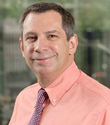
Sergio A. Giralt, MD, is the chief of the Adult Bone Marrow Transplant Service in the Division of Hematologic Oncology at Memorial Sloan Kettering Cancer Center in New York, New York. He is affiliated with Weill Cornell Medical College as a professor of medicine. Dr. Giralt received his medical degree from Universidad Central de Venezuela in Caracas, Venezuela, and completed his postgraduate internship at the University Hospital of Caracas. He completed an internal medicine residency at Good Samaritan Hospital in Cincinnati, Ohio, and a postdoctoral fellowship in hematology and oncology at The University of Texas MD Anderson Cancer Center.
Board certified in internal medicine and hematology, Dr. Giralt holds membership in several professional societies, including the American Society of Hematology, the American Society of Clinical Oncology, the North American Society of Blood and Bone Marrow Transplantation, and the International Society of Haematology. He holds key positions with several organizations, including the International Bone Marrow Transplant Registry Executive Committee, the Blood and Marrow Transplant Clinical Trials Network (BMTCTN) Steering Committee, the National Marrow Donor Program Board of Directors, and the Clinical Advisory Board of ManagingMyeloma.com. He is the past President of the American Society for Blood and Marrow Transplantation as well as the Past Chair of the BMT-CTN and of the Center for International Blood and Marrow Transplant Research.
Dr. Giralt’s clinical research career has focused on three areas: developing better tolerated conditioning regimens for older or medically infirmed patients with hematologic malignancies to allow them access to this procedure; developing novel HCT therapies (conditioning regimens plus post-transplant therapies) for autologous and allogeneic HCT for myeloma; and pursuing strategies that will significantly reduce HCT symptom burden and toxicities. As Chief of the Adult BMT Service, he has had extensive experience designing, implementing, and performing HCT studies both as a principal investigator and as a collaborator.
Dr. Giralt has published more than 400 articles and abstracts in the peer-reviewed literature and written chapters for several books. Additionally, he is a reviewer and editorial board member for several journals.
Stephen Gottschalk, MD
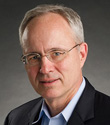
Stephen Gottschalk, MD, is the chair of the Department of Bone Marrow Transplant and Cellular Therapy at St. Jude Children’s Research Hospital. He is a physician scientist focused on the development of T-cell therapies for cancer. Dr. Gottschalk is actively conducting clinical studies with antigen-specific T cells for patients with brain and solid tumors. In the laboratory, he is focused on improving T-cell therapy for cancer using genetic approaches.
Helen Heslop, MD
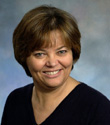
Helen Heslop, MD, is a professor of medicine and pediatrics and the director of the Center for Cell and Gene Therapy at Baylor College of Medicine, Houston Methodist Hospital, and Texas Children’s Hospital. She is a physician scientist engaged in translational research focusing on adoptive immunotherapy with gene-modified effector cells to improve hemopoietic stem cell transplantation and cancer therapy. Dr. Heslop’s initial studies were the first to demonstrate that antigen-specific cytotoxic T cells could eradicate an established malignancy. Because the cells were genetically marked, she and her collaborators obtained definitive evidence of cell expansion, trafficking to tumor sites, and decade-long persistence.
Dr. Heslop’s has extensive experience in developing and conducting cell and gene therapy studies and currently holds 23 INDs. She was a Doris Duke distinguished clinical research scientist and serves as principal investigator on an NCI-funded program project grant (Enhancing T-Cell Therapy of Cancer), a Leukemia and Lymphoma Society Specialized Center of Research Award, and a SPORE in lymphoma from the NCI. She is the current president of the American Society for Cell and Gene Therapy and a past president of the Foundation for Accreditation of Cell Therapy and the American Society for Blood and Marrow Transplantation.
Jennifer Holter Chakrabarty, MD

Jennifer Holter Chakrabarty, MD, is an associate professor of medicine at the University of Oklahoma Health Sciences Center and an adjunct associate professor of radiation oncology. She holds the Inasmuch Foundation Chair in Cancer Screening, Education, and Research. Dr. Holter Chakrabarty is board certified in hematology and medical oncology. She received her bachelor of zoology with distinction from the University of Oklahoma, where she also attended medical school, residency, and fellowship.
Dr. Holter Chakrabarty’s major research initiatives focus on the evaluation of novel imaging techniques to identify non-engraftment or secondary graft failure and persistence of residual disease in bone marrow transplantation. Her work using fluorothymidine imaging in a proof-of-concept bench animal model has helped to identify marrow toxicity and nonengraftment. These findings have been translated to in vivo imaging trials for the evaluation of engraftment to allow for early identification of failure and movement toward curative marrow transplantation.
Dr. Holter Chakrabarty has published research to evaluate the role of radiation sequence with chemotherapy, stability, and clinical success of long-term cryopreserved cells, and the impact of minimal residual disease on choices between autologous and allogeneic grafts. With more than 10 years of experience in clinical and translational bone marrow transplantation in the only transplant center in the state of Oklahoma, she has extensive experience in the unmet bedside needs of transplant, including complications of high risk transplants—using unrelated, cord, and haploidentical graft. In addition, Dr. Holter Chakrabarty has participated in international and national collaborations using 18Fluorothymidine.
She has been active at the national level with the American Society of Hematology, serving on the Committee of Government Affairs, on the Task Force on Immunotherapies, and as part of the ASH Palliative Care Working Group. Dr. Holter Chakrabarty also serves as the ASH representative to the ASCO-NCCN Guideline Panel.
Leslie Kean, MD, PhD
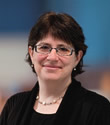
Leslie S. Kean, MD, PhD, is the associate director of the Ben Towne Center for Childhood Cancer Research at Seattle Children’s Research Institute and is a full member at the Fred Hutchinson Cancer Research Center. Her research program is focused on the immunology of hematopoietic stem cell transplantation. The overarching goal of Dr. Kean’s research is to understand mechanisms underlying immune tolerance after transplantation, with a specific focus on graft-versus-host disease (GvHD), transplant rejection, and the reconstitution of protective immunity after transplantation. Her work on transplant rejection and GvHD has led to the creation of novel, MHC-defined non-human primate models of both engraftment and GvHD and to several first-in-disease clinical trials. Dr. Kean has used both the animal models and the mechanistic studies linked to her clinical trials to investigate the cellular and molecular mechanisms of GvHD and transplant rejection, and to test the impact that novel immunosuppressive therapies can make on these processes.
James Kochenderfer, MD
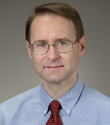
James Kochenderfer, MD, is a tenure-track investigator in the Experimental Transplantation and Immunology Branch (ETIB) of the National Cancer Institute. He received his medical degree from West Virginia University and completed internal medicine training at Vanderbilt University. Dr. Kochenderfer completed a medical oncology fellowship at the MD Anderson Cancer Center and a hematology fellowship at Baylor College of Medicine. He undertook a period of postdoctoral research training in T-cell immunotherapy in the laboratories of Drs. Ronald Gress and Steven Rosenberg. Dr. Kochenderfer then obtained his first senior staff position as an assistant clinical investigator in the ETIB prior to starting his current position.
For the past nine years, he has focused on a full range of chimeric antigen receptor (CAR) research from designing and constructing new CARs to conducting clinical trials. Dr. Kochenderfer designed a novel anti-CD19 CAR, conducted preclinical studies on T cells expressing this CAR, and then participated in a clinical trial of this CAR. This clinical trial was the first to demonstrate activity of anti-CD19 CARs in humans. Dr. Kochenderfer designed a chimeric antigen receptor targeting B-cell maturation antigen (BCMA). He then led a clinical trial of T cells expressing this CAR. This trial was the first to show elimination of measurable multiple myeloma in humans by CAR T cells. Dr. Kochenderfer is currently principal investigator of CAR T-cell clinical trials targeting lymphoma, leukemia, and multiple myeloma, and he leads a lab that designs new CARs and studies CAR T-cell biology in vitro and murine models.
Alexander M. Lesokhin, MD
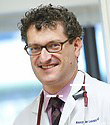
Alexander M. Lesokhin, MD, is a physician-scientist focused on the study of tumor immunology with a specific interest in developing innovative ways to use the immune system to treat cancer. He leads immunotherapy clinical trials as a clinician in his center’s immunotherapeutic clinical core and on the myeloma service in the division of hematologic oncology. Dr. Lesokhin has been involved in the development and implementation of several vaccines studies and immunomodulatory antibody clinical studies. This work involves ongoing monitoring of immune responses against tumor antigens (e.g., cancer testis antigens) and development of biomarkers of clinical outcome following immunomodulatory antibody therapy in multiple tumor types.
In the lab, Dr. Lesokhin’s focus is on the characterization of myeloid derived suppressor cells (MDSC) and the implications of these cells for the development of adaptive immune responses against melanoma and other cancers. He has been awarded funding by the American Cancer Society and the Melanoma Research Alliance to continue work in the laboratory and to pursue clinically relevant translational studies focused on MDSC.
Ronald Levy, MD
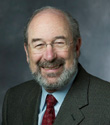
Ronald Levy, MD, is the Robert K. Summy and Helen K. Summy Professor of Medicine and director of the Lymphoma Program at Stanford University School of Medicine. He is also the associate director of Translational Science for the Stanford Cancer Institute. For more than 25 years, Dr. Levy’s research has focused on monoclonal antibodies and the study of malignant lymphoma, currently using the tools of immunology and molecular biology to develop a better understanding of the initiation and progression of the malignant process. He was the first to successfully treat cancer with a monoclonal antibody and went on to help develop rituximab (Rituxan®) for the treatment of patients’ lymphomas. Dr. Levy’s research concentrates on using lymphocyte receptors as targets for new therapies for lymphoma, and he is currently conducting clinical trials of lymphoma vaccines. He has published over 300 articles in the fields of oncology and immunology.
In 1982, Dr. Levy shared the first Armand Hammer Award for Cancer Research. His other awards include the Ciba-Geigy/Drew Award in Biomedical Research, the American Society of Clinical Oncology Karnofsky Award, the General Motors Charles Kettering Prize, the Key to the Cure Award by the Cure for Lymphoma Foundation, the American Cancer Society Medal of Honor, the Evelyn Hoffman Memorial Award by the Lymphoma Research Foundation of America, and the American Society of Hematology William Dameshek Prize. In 2009, he was elected to the National Academy of Sciences, and he won the King Faisal International Prize in Medicine.
Jeffrey S. Miller, MD
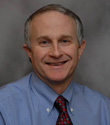
Jeffrey S. Miller, MD, received his bachelor of science degree from Northwestern University in Evanston, Illinois, and his medical degree from Northwestern University School of Medicine. He completed an internship and residency in internal medicine at the University of Iowa. Dr. Miller joined the faculty of the University of Minnesota in 1991 after completing a post-doctoral fellowship in hematology, oncology, and transplantation. He is currently a professor of medicine at the University of Minnesota and the deputy director of the University of Minnesota Masonic Comprehensive Cancer Center.
Dr. Miller has more than 20 years of experience studying the biology of NK cells and other immune effector cells and their use in clinical immunotherapy with over 200 peer-reviewed publications. He is a member of numerous societies such as the American Society of Hematology, the American Association of Immunologists, and the American Society of Clinical Investigation. He serves on the editorial board for Blood and is a reviewer for a number of journals and NIH grants. Dr. Miller was the recipient of the National Cancer Institute Outstanding Investigator Award for 2015.
Bertrand Nadel, PhD
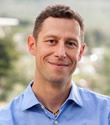
Bertrand Nadel, PhD, is research director at the French National Institute of Health and Medical Research (INSERM). He trained with Professor Pierre-André Cazenave at the Pasteur Institute (Paris France) for his PhD, and performed his postdoc in Professor AJ Feeney’s lab at the Scripps Research Institute (La Jolla, CA, USA). He was lab head between 1998 and 2002 in the Department of Internal Medicine, Division of Hematology at the University of Vienna, Austria before establishing his current lab at the Centre d’Immunologie de Marseille-Luminy (CIML) France. In 2017, Dr. Nadel was appointed Director of the CALYM Carnot Institute on lymphoma, a nation-wide consortium regrouping French researchers and clinician experts on lymphoma, and the LYSA(RC) (lymphoma study association, coordinating clinical research and trials on lymphoma) aimed at fostering innovation, research and development between academia and industry. As director of the Cancéropôle PACA, one of the seven regional federative structures appointed by the French National Cancer Institute (INCa), he is responsible for coordinating forces, actions, and joint initiatives on cancer through federating a community of 12 research institutes, hospitals, cancer research centers, and local structures of excellence of the PACA French south-east region. Dr. Nadel is also a committee member of several French research institutions; the National Institute for Health and Medical Research (INSERM), the High Council for Evaluation of Research and Higher Education (HCERES), and the LNCC. His research focuses on the (epi)genetic mechanisms of oncogenesis in human lymphoma/leukemia and aims to identify pertinent bio-markers and innovative therapeutic approaches.
Sophie Paczesny, MD, PhD
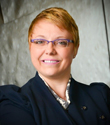
Sophie Paczesny, MD, PhD, is a professor of pediatrics and immunology at Indiana University School of Medicine. She received her medical degree at the University of Strasbourg, France, is board certified in pediatrics and hematology/oncology, and obtained a PhD in tumor immunology from the University of Paris and the Baylor Institute for Immunology. Dr. Paczesny worked in Paris, France, before moving to the University of Michigan in 2006 as a post-doctoral fellow and then assistant professor. In 2012, she started work at Indiana University. Dr. Paczesny is currently the Nora Letzter Professor of Pediatrics, is a full member of the Indiana University Simon Cancer Center, and leads the Biomarkers Stem Cell Transplantation Program. She also has an international joint appointment at the Nice-Sophia Antipolis University School of Medicine in France.
Dr. Paczesny is a member of the American Society for Clinical Investigation, co-chair of the Centre for International Blood and Marrow Transplant immunobiology working group, and co-chair on the ASH Task Force on Immunotherapies. Her research has focused on three areas: developing and translating biomarkers for the outcomes following allogeneic hematopoietic stem cell transplantation; discovering inhibitors of drug targetable biomarkers; and finding novel therapies to treat graft-versus-host disease and improve graft-versus-leukemia, including cellular therapies.
Marcelo C. Pasquini, MD
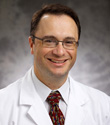
Marcelo C. Pasquini, MD, is an associate professor of medicine at the Medical College of Wisconsin. He serves as the senior scientific director for the Center of International Blood and Marrow Transplant Research where he focuses on development and implementation of clinical trials for the Blood and Marrow Transplant Clinical Trials Network (BMT CTN) and oversees the Cellular Therapy Outcomes Registry. Dr. Pasquini’s research focuses on different applications of hematopoietic cell transplantation and cellular therapies, including clinical trial development and studies utilizing outcomes database.
Steven Pavletic, MD

Steven Pavletic, MD, is a senior clinician, clinical investigator, and head of the Graft-versus-Host and Late Effects Section in the Experimental Transplantation and Immunology Branch of the National Cancer Institute (NCI), National Institutes of Health (NIH) in Bethesda, Maryland. He is also an adjunct professor of Medicine at the Georgetown University, Lombardi Cancer Center, Division of Oncology, in Washington DC. Dr. Pavletic received his medical degree and internal medicine training from the Zagreb University School of Medicine in Croatia. He completed clinical and research fellowships in bone marrow transplantation in the Clinical Research Division of the Fred Hutchinson Cancer Research Center and the Oncology Division of the University of Washington School of Medicine in, Seattle, Washington. Dr. Pavletic has undertaken training in internal medicine and oncology/hematology at the University of Nebraska Medical Center, Omaha, Nebraska where he was also the director of the Allogeneic Stem Cell Transplantation until 2002.
In 2003, while at the NCI Dr. Pavletic initiated the trans-NIH multi-institute clinical research program in chronic graft-versus-host disease (GVHD). His main research interests are in the field of allogeneic hematopoietic stem cell transplantation for hematologic cancers, and he has published more than 250 articles in peer reviewed journals and many book chapters. Dr. Pavletic is also the editor in chief of the first textbook on chronic GVHD. In October 2006 Dr Pavletic received NCI director’s individual merit award for achievements in developing national and international NIH consensus guidelines for clinical trials in chronic GVHD. He chaired the 2005 and 2014 NIH chronic GVHD consensus projects. He was the 2015 chair of the American Society of Hematology Scientific Committee on Transplantation and Cell Therapy and now co-chairs the ASH Task Force for Immunotherapies. His current main clinical research focus is in the development and implementation of new targeted therapies for chronic GVHD.
Stanley Riddell, MD
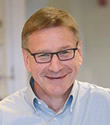
Stanley Riddell, MD, is a member of the Program in Immunology and Director of the Integrated Immunotherapy Research Center at the Fred Hutchinson Cancer Research Center. His research focuses on understanding T cell immunity to pathogens and tumors, and on the development and clinical application of adoptive T cell therapy for cancer using genetic modification of T cells to confer tumor specificity and overcome barriers to tumor eradication.
Steven A. Rosenberg, MD, PhD
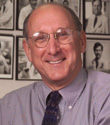
Steven A. Rosenberg, MD, PhD, is chief of the surgery branch at the National Cancer Institute in Bethesda, Maryland, and a professor of surgery at the Uniformed Services University of Health Sciences and at the George Washington University School of Medicine and Health Sciences in Washington, DC.
Dr. Rosenberg received his undergraduate and medical degrees at The Johns Hopkins University in Baltimore, Maryland, and a PhD in Biophysics at Harvard University. He completed his residency training in surgery in 1974 at the Peter Bent Brigham Hospital in Boston, Massachusetts.
Dr. Rosenberg has pioneered the development of immunotherapy that has resulted in the first effective immunotherapies for selected patients with advanced cancer. His studies of cell transfer immunotherapy have resulted in durable complete remissions in patients with metastatic melanoma. He has pioneered the development of gene therapy and was the first to successfully insert foreign genes into humans. Dr. Rosenberg’s studies of the adoptive transfer of genetically modified lymphocytes resulted in the regression of metastatic cancer in patients with melanoma, sarcomas, and lymphomas.
Dr. Rosenberg has been the recipient of numerous awards, including the Meritorious Service Medal for the U.S. Public Health Service (1981, 1986), the Friedrich Sasse Prize (1986), the Nils Alwell Prize (1987), the Distinguished Alumnus Award from The Johns Hopkins University (1987), the Griffuel Prize for Research (1988), and the Milken Family Foundation Cancer Award (1988). Dr. Rosenberg twice received the Armand Hammer Cancer Prize “for pioneering work in cancer research” (1985, 1988). In 1991, he received the American Society of Clinical Oncology Karnofsky Prize. Dr. Rosenberg’s other awards include the Ellis Island Medal of Honor (1998), the John Wayne Award for Clinical Research (1996), the American Surgical Association Flance-Karl Award (2002), the annual prize for scientific excellence in medicine from the American-Italian Cancer Foundation (2003), the Richard V. Smalley, MD, Memorial Award (2005), the American Association of Blood Banks Karl Landsteiner Prize (2010), the Keio Medical Science Prize (2012), and the Massry Prize (2014). He received the Medal of Honor from the American Cancer Society in 2015.
Dr. Rosenberg is a member of the American Society of Clinical Oncology and served on its Board of Directors. He is also a member of the National Academy of Medicine, the Society of University Surgeons, the American Surgical Association, the American Association for Cancer Research, and the American Association of Immunologists among others. Dr. Rosenberg has authored eight books and more than 1,100 articles in the scientific literature covering various aspects of cancer research.
Bianca D. Santomasso, MD, PhD
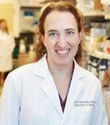
Bianca D. Santomasso, MD, PhD, is an assistant attending neuro-oncologist and scientist at Memorial Sloan Kettering Cancer Center. Her expertise is in the diagnosis and management of neurologic complications of immunotherapies. Dr. Santomasso led the development of Memorial Sloan Kettering protocols for neurologic monitoring of CAR T-cell therapies and participated in an expert panel to develop guidelines for the management of immune-related adverse events, as part of a joint collaboration between the National Comprehensive Cancer Network and the American Society of Clinical Oncology.
After receiving her undergraduate degree from Yale University, Dr. Santomasso obtained her medical degree from Weill Cornell Medical College and her PhD from The Rockefeller University. She completed her neurology residency at New York-Presbyterian/Weill Cornell Medical Center, followed by a clinical fellowship in neuro-oncology at Memorial Sloan Kettering where she remains on faculty. Dr. Santomasso’s research focuses on mechanisms of neurotoxicity arising from CD19 CAR T cell and immune checkpoint blockade treatments. She seeks to enhance immune recognition of brain tumors by modulating the tumor microenvironment.
Yogen Saunthararajah, MD
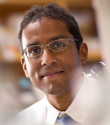
Yogen Saunthararajah, MD, is a professor of medicine, staff physician, and co-leader of the Developmental Therapeutics Program at the Case Comprehensive Cancer Center in Cleveland, a matrix Cancer Center of Cleveland Clinic and Case Western Reserve University. Dr. Saunthararajah’s research focuses on elucidating the molecular mechanisms by which cancers avoid terminal-differentiation despite high content of the master transcription factors that usually drive this fate. His research also focuses on using such understanding to develop non-cytotoxic treatments that release these intended cell-fates. A co-focus is development of non-cytotoxic therapeutics for immuno-oncology applications and for the treatment of sickle cell disease and β-thalassemia.
Danielle Townsley, MD, MSc
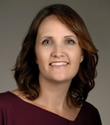
Danielle Townsley, MD, MSc, is an associate director in Clinical Development, Oncology at Medimmune in Gaithersburg, Maryland. She received a bachelor’s degree at the University of California – San Diego in 1999 and a master’s degree in Epidemiology from the University of Edinburgh, Scotland in 2002. Dr. Townsley completed her medical degree in 2006 and internal medicine residency at the George Washington University in 2009. In 2011, she completed her hematology fellowship at the National Institutes of Health and subsequently became a principal investigator on multiple clinical trials within the bone marrow failure program at the National Heart Lung and Blood Institute (NHLBI) under the leadership of Dr. Neal Young. Dr. Townsley led clinical studies investigating the use of eltrombopag (Promacta) for aplastic anemia and myelodysplastic syndromes as well as danazol for inherited bone marrow failure. Currently, she oversees early stage development of biologic therapeutics for a variety of hematologic malignancies and solid tumors.
Kathleen Weis
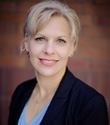
Kathleen Weis is the CEO of the Aplastic Anemia and MDS International Foundation (AADMSIF), an international organization that promotes and invests in collaborative clinical research to accelerate the discovery of better treatments and cures for aplastic anemia, myelodysplastic syndromes, paroxysmal nocturnal hemoglobinuria, and related bone marrow failure diseases. Prior to joining AADMSIF, Ms. Weis served from 2013 to 2015 as chief executive officer of the American Red Cross Gold Country Region. Before becoming the CEO, she had a far-reaching career with the American Red Cross, where she also served as the chief operating officer for the Gold Country Region and in various management capacities at the organization’s headquarters in Washington, DC. Before her career with the Red Cross, Ms. Weis worked in the private sector for Allscripts Healthcare Solutions, a health care technology company; the Bulletin of the Atomic Scientists, an international nuclear affairs magazine; and the accounting firm PriceWaterhouseCoopers.
Currently, Ms. Weis is on the board of directors for the National Organization for Rare Disorders and is a member of the steering committee for the MDS-Alliance, a worldwide coalition of national MDS patient support and advocacy groups. She previously served on the board of directors for TLCS, Inc., a Sacramento-based organization providing mental health and supportive housing services for people with mental health challenges. Ms. Weis holds a master’s degree in public service from DePaul University and a bachelor’s degree in communications from Michigan State University.